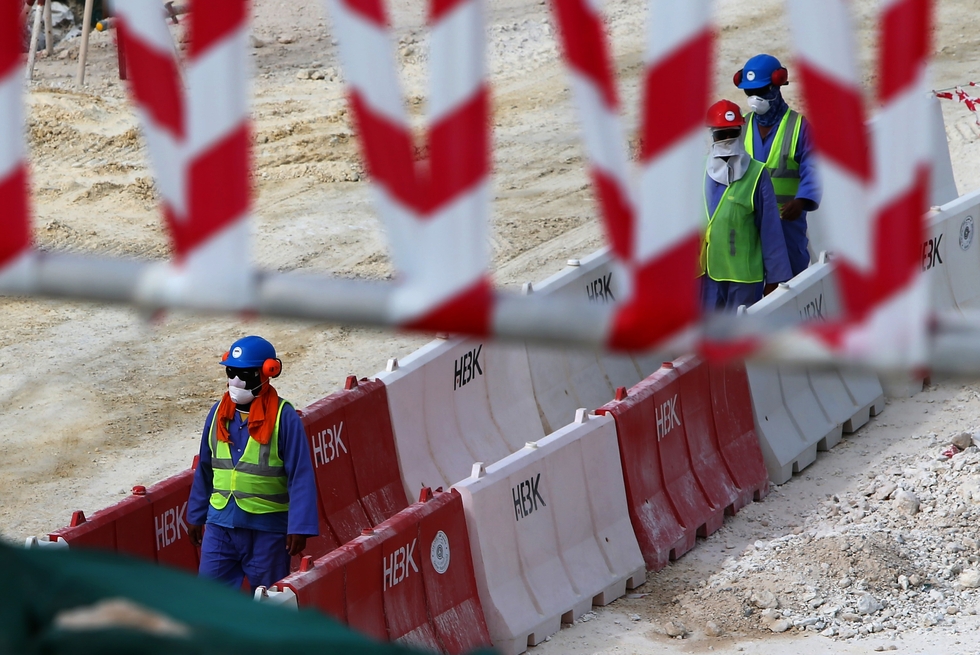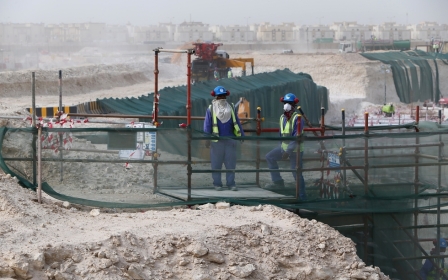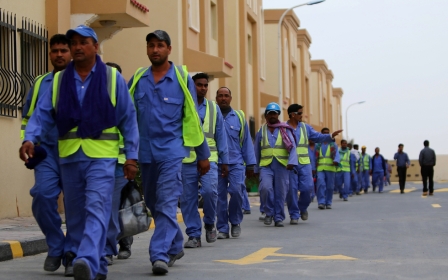Amnesty slams FIFA for having 'head in sand' over Qatar abuses

A FIFA report on human rights, commissioned in the wake of widespread reports of mistreatment of workers on the construction sites for Qatar's 2022 World Cup, has been criticised by Amnesty International for dodging the need for concrete action on the issue.
The Ruggie Report, compiled by John Ruggie, a professor at Harvard’s Kennedy School, sets out a broad range of human rights reforms needed to bring FIFA’s business practices up to standard.
Ruggie said that as an international sports organisation, FIFA's faced "significant risks to people’s basic dignity and welfare".
"That reality demands a robust and proactive response. FIFA is not solely responsible for solving these problems where the actions of others are the primary cause. But it must use its influence to address these human rights risks as determinedly as it does to pursue its commercial interests,” he added.
However, Amnesty said the report failed to look specifically at the well-documented human rights crisis in Qatar as the country prepares to host the 2022 tournament, accusing it of ducking the issue for years.
“FIFA has had its head in the sand about the abuses in Qatar for more than five years, telling itself and the world that the Qatari authorities will fix things,” said Mustafa Qadri, Gulf migrants’ rights researcher at Amnesty International.
“That has not happened, and now only concerted FIFA action to prevent abuses on World Cup sites will save the soul of the 2022 World Cup in Qatar.
“The Ruggie report warns that FIFA has ‘a long road ahead’ from this ‘initial commitment to human rights’. But migrant workers in Qatar cannot wait,” he added.
“They need human rights protections now. While FIFA dawdles, they are at risk of a shocking catalogue of abuses, including forced labour. [FIFA president] Gianni Infantino cannot hide behind this report. He needs to take concrete action right now to address abuses in Qatar.”
New FIFA president Infantino, who was recently elected to replace the body's longstanding president Sepp Blatter following a massive corruption scandal, said that the global football federation was "fully committed to respecting human rights".
"This is an ongoing process and of course challenges remain, but FIFA is committed to playing its part in ensuring respect for human rights and to being a leader among international sports organisations in this important area,” he said.
'Head in the sand'
FIFA hired Ruggie, who developed the United Nations Guiding Principles on Business and Human Rights, to review and report on the organisation’s business practices in December 2015.
In February, he told the Irish Times that he took on the job of writing the report because it was a chance to make a difference, saying "the leverage is extraordinary for advancing human rights and human dignity around the world”.
But he admitted it was not clear how the changes he was going to outline would apply to the Gulf country and its hosting status.
“I don’t know enough about Qatar,” he said. “I only know what I read in the paper about what the government has done and whether it’s fast enough. I don’t know how this would play out in a situation where bids have already been accepted.”
He added that he was not being paid by FIFA and that Harvard retained the rights to edit his report.
Amnesty International last month published its own report, The ugly side of the beautiful game: Exploitation on a Qatar 2022 World Cup site, in which it called on FIFA to take steps to stop the exploitation of the workforce in Qatar, including conducting its own inspections of building sites in the country.
Some of the abuses reported by Amnesty included workers being threatened for complaining about their conditions, squalid and cramped accommodation, not being paid for several months and having their passports confiscated and residency permits denied, leaving them vulnerable to being arrested if they tried to leave their work.
The Ruggie report urged action in three areas. Firstly, "FIFA needs to translate its commitment to respect human rights, included in its new Statutes, into its daily actions and decisions."
Secondly there was a need for "stronger internal systems to address the increasingly predictable human rights risks associated with its business".
Finally, it calls for greater transparency in the way FIFA manages human rights risks.
Middle East Eye propose une couverture et une analyse indépendantes et incomparables du Moyen-Orient, de l’Afrique du Nord et d’autres régions du monde. Pour en savoir plus sur la reprise de ce contenu et les frais qui s’appliquent, veuillez remplir ce formulaire [en anglais]. Pour en savoir plus sur MEE, cliquez ici [en anglais].




